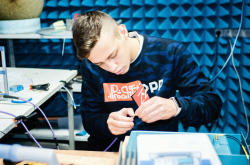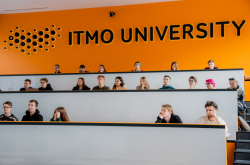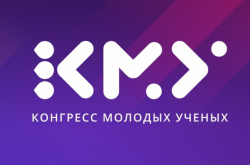The congress included ten sections on various subjects: Biotechnology; Engineering of the Future: Control, Computing, and Security; Engineering Sciences and Energy Efficiency; Interdisciplinary Research Based on Methods of Chemistry; Digitization and Applied Programming; Programming in Telecommunications; Technoethics; Photonics; Ecology and Sustainable Development; and Technological Innovation Management in Digital Economy.
As noted by Alexander Fedorov, head of the Biotechnology section and several educational programs at ITMO’s Faculty of Biotechnologies, the expert board was pleasantly surprised with the level of presentations.
“Our task as heads of sections was to create a favorable and friendly atmosphere at the event. However, that’s not an easy task. After all, we’re talking about school students who are just making their first steps and not university students or graduates. In total, 20 speakers gave diverse presentations in the fields of biotechnology, microbiology, medicine, biology, and interdisciplinary research. I must say, the experts had a hard time choosing winners since all projects were praiseworthy. We’ll look forward to seeing them become part of ITMO.Family. Working with these students is interesting, and we’ll definitely be seeing results,” Alexander Fedorov shares his impressions.
ITMO.NEWS talked to the winners to learn more about their projects, scientific interests, and future plans.
Maria Zyryanova, a 10th-grade student, School No. 88, Tyumen. Winner in the Programming in Telecommunications section.
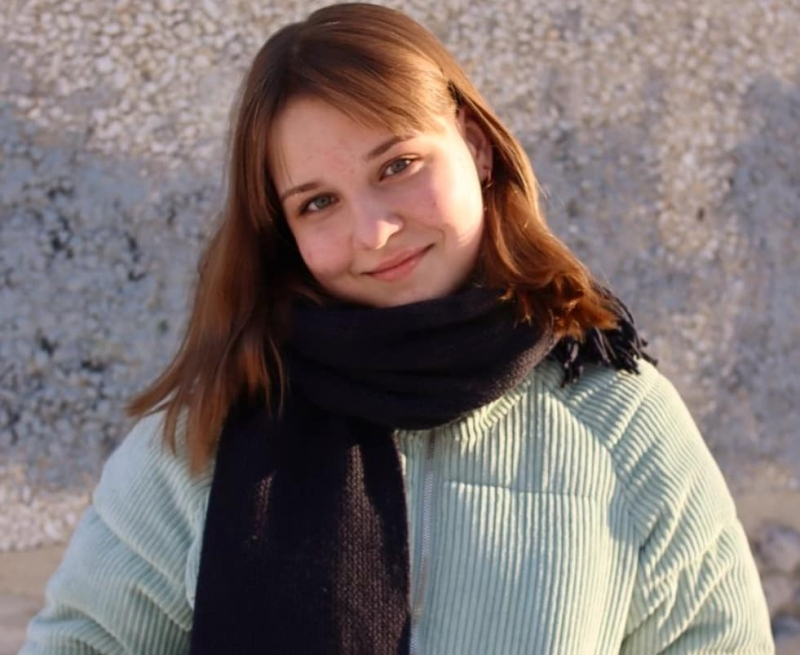
My project is a client-server desktop app called Lesson Builder, which is basically a digital tool for designing lessons on soft skills.
According to the Russian Federal State Educational Standards (FSES), lessons must develop certain competencies: creative and critical thinking, cooperation, and so on. Each teacher develops their own methods for training soft skills over the years. Yet the problem is that these practices go no further than some private circles. In other words, a teacher from Samara won’t share their best practices with another teacher from Moscow unless they know each other. My app will let teachers post their handy methods and techniques online and use this data to generate lesson plans. Most importantly is that the program creates a lesson plan in the form of a document following the standards of FSES.
I’m not used to pulling ideas out of thin air. As a programmer, my task is to improve people’s lives. I knew that teachers have to submit documentation on each lesson specifically, so I tried to find a way to solve this problem. I started working on this project in September and since then I’ve revised it a bunch of times. My school already uses this technology, but I still want to add some features, for instance, make a web client and allow students to provide feedback.
I believe that finished projects should see the light of day. That’s why I decided to present my app first at the Step into the Future competition and then at the Congress of Young Scientists. I fairly expected to bring home one of the prizes but not become a winner. I was also extremely surprised to see that I was the only girl in my section.
I studied in a humanities class, so I took up programming more or less by chance. Three years ago, I got into Yandex.Lyceum. During the first year, I didn’t pay much attention to my studies but then I became interested in industrial programming: websites, bots, desktop applications, and games. This was when I realized that I want to create projects that actually help people. As a result, I was named among the best graduates of the Lyceum in Russia and understood that my calling is programming. Now, I attend the Tyumen School of Young Neuroengineers, where I study big data, artificial intelligence, and neural links. This summer, I also finished courses on cryptocurrencies, blockchain, and smart contracts at the Innopolis University. In the future, I’d like to deal with blockchain and artificial intelligence as these fields give room for something new. Now, I’m thinking about enrolling in ITMO University through the ITMO.STARS competition.
Maksim Legotin, an 11th-grade student, School No. 2, Kopeysk urban district. Winner of the special ITMO.STARS award and participant of the Biotechnology section.
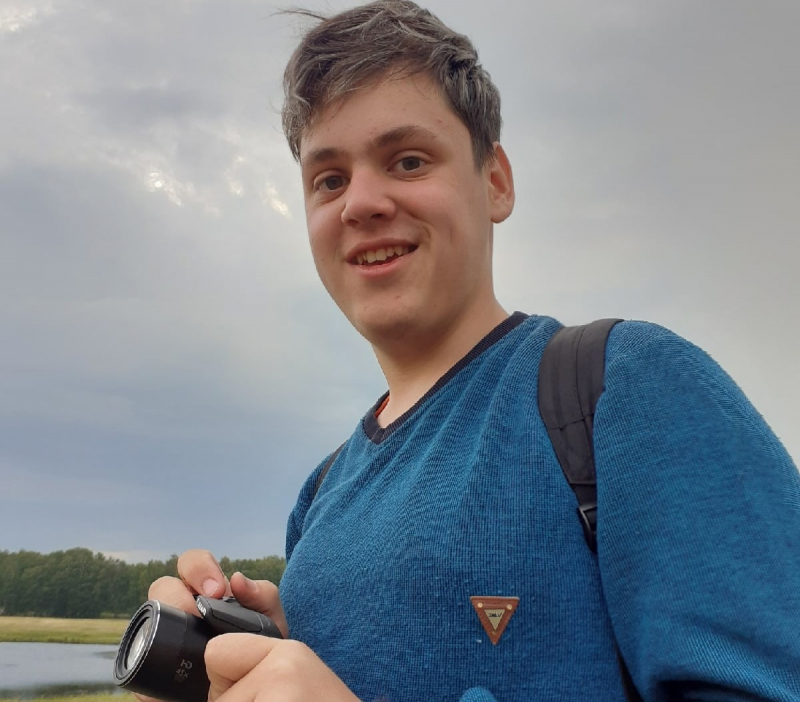
My research focuses on the foaming properties of medicinal plants. The nature of these properties lies in saponins, substances that can be used to create eco-friendly cleaning supplies, cosmetics, and even food products. Today, only Saponaria officinalis is widely used in mass production. But my research shows that other plants have not only better characteristics, but also a number of advantages such as greater resilience to environmental conditions and less allergenic components. Some of the known plants – for instance, licorice and salvia – are not used in soap making even though they are beneficial for the skin.
I’ve been doing this research for two and a half years. Our ecoclub holds numerous events, and we actively participated in different competitions before the pandemic. Once, we visited a festival of green cosmetics. There, I noticed the difference between the cost of cleaning supplies and their components. The thing is that we’re paying not for the ingredients but for the brand. Nevertheless, people buy such products. After that festival, my supervisor suggested that I started to research this topic. And although cosmetology is seen as a field for women, I was interested in the topic. Besides, I have a background in biology, botany in particular.
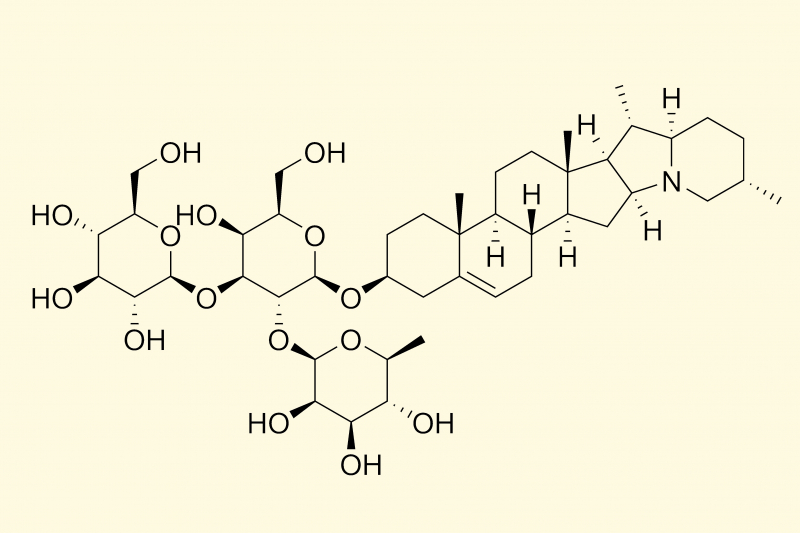
Our ideas and the recipes we developed are now widely used by small businesses in the Southern Urals. I actively presented my invention at various conferences and thus received numerous offers.
As I’m still underage, I can’t really do much patent-wise. In the future, I want to expand my work in this field and use saponins to make emulsions, too. This technology can be applied in the production of different beauty products – creams, gels, and so on.
I won the Yunnat National Competition, participated in the Fatherland competition, and got into the final round of the Step into the Future competition. Yet when I take part in such contests, I try not to think about winning and prizes and instead focus on the importance of my work for people.
Vladimir Kartashev and Nikita Radaev, 10th-grade students, Gazprom Kyrgyzstan school, Bishkek. Winners of the Technoethics section.
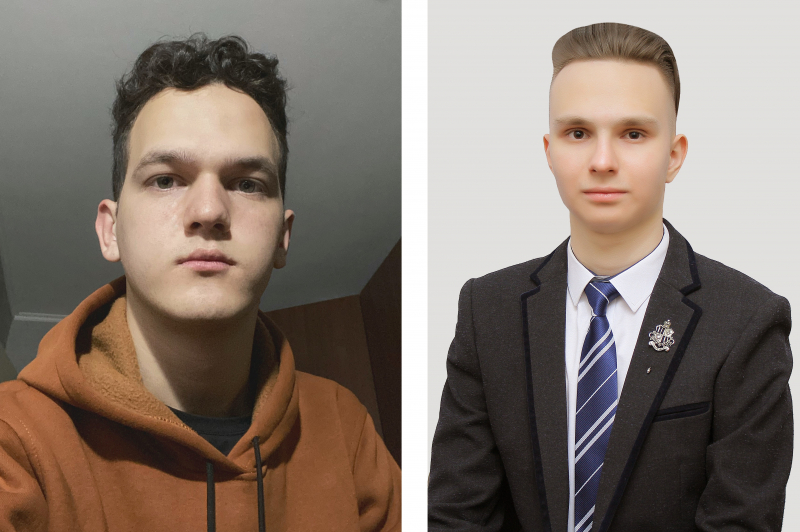
We’re developing an app and a special braille phone case that will allow people with visual impairments to enjoy the full range of their phones’ functions: make calls, send emails, look up information, read texts and books, listen to music, and so on. Users will be able to use the keyboard not only to type text but also to navigate other applications. For example, if you want to open a recording app, you will need to press D several times and for audiobooks – try A. There will also be a voice assistant, a taxi shortcut button, a panic button, and an ability to receive updates on the phone's status.
This idea came to me when Vladimir tried to help two blind people cross a street but failed because of the language barrier (in Kyrgyzstan, there are two official languages). Then, we thought how wonderful it’d be if the blind had more opportunities. We spent three months developing the idea: we tried to use a phone blindfolded and consulted with the blind to learn what we can add to the app and how we can make it more convenient.
We started working on this project after we learned about ITMO University and the Congress of Young Scientists at school. Although we had this idea for a long time, this presentation gave us the necessary push. We decided to join so that we could learn more about the congress, as well as receive feedback and support. We believe that our project will greatly help people with visual impairments. Sure, there are already special phones for the blind but, unfortunately, they are expensive and available mainly in Europe and the US. And our software and case will make any phone friendly for blind users. We plan to finish this project before the end of school. After all, we’ve got all of summer.
While Vladimir is going to study IT, perhaps at ITMO’s Faculty of Secure Information Technologies or Information Technologies and Programming, Nikita plans to study bioinformatics and considers ITMO as an option, too.
Gleb Rusanov, eighth-grade student, Young Technicians Station, Votkinsk. Winner of the special ITMO.STARS award and participant of the Programming in Telecommunications section.
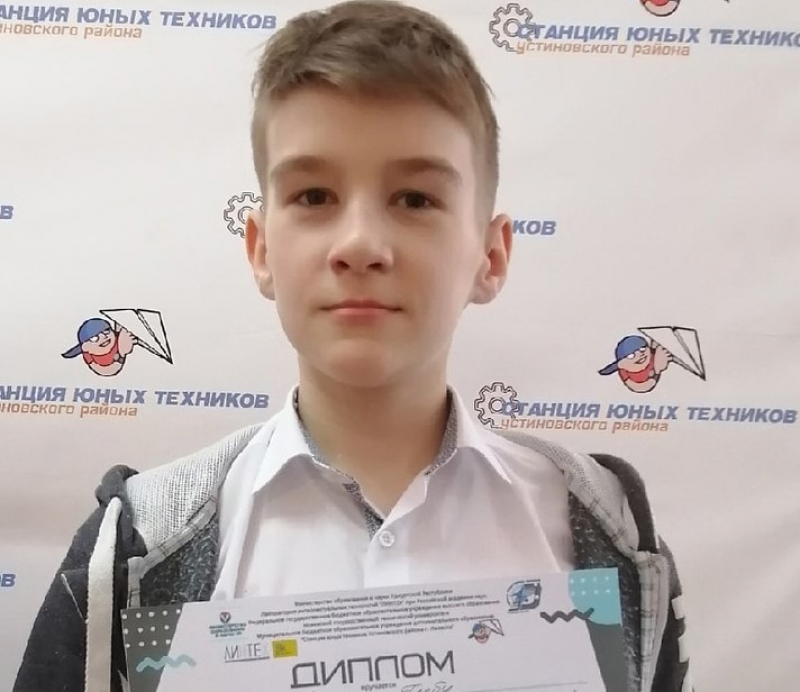
I’m working on a neural network for face recognition in medical masks. This is actually part of my other project on automatic hand sanitizer systems. Among its unique features are a non-contact thermometer, an automatic antiseptic dispenser, and facial mask recognition. Later, these parameters can be changed and the network – re-trained to recognize the presence of protective helmets or uniforms. The technology will be useful on construction sites, oil rigs, chemical plants, and so on.
I came up with this idea on my own, and my supervisor helped me to bring it to life. It took around six months to develop the project. First, I studied Python and machine learning, then started to create the network. During my work, I took courses at the Academy of Social Technologies, looked for additional information, and learned some things from my supervisor, for example, about the congress.
He always encouraged me to take part in different contests. Although it’s not a common thing in Votkinsk, there are quantoriums and technoparks in the nearby Izhevsk and they regularly hold hackathons and competitions. I decided to join the congress because of its reputation. I wanted to learn more about other participants and their projects. I think that there were more complex ones but I’m glad that I won.
I became interested in neural networks about a year ago and started off with basic image classifiers. But I’ve been programming since my fifth grade. I know HTML and CSS, started to learn Python, and took courses on Arduino. I enjoy coding and creating different websites and apps. And I think that’s what I’m going to do in the future.
Kirill Manulik, ninth-grade student, Gymnasium No. 146, Minsk. Winner of the special ITMO.STARS award, a participant of the Ecology and Sustainable Development section.
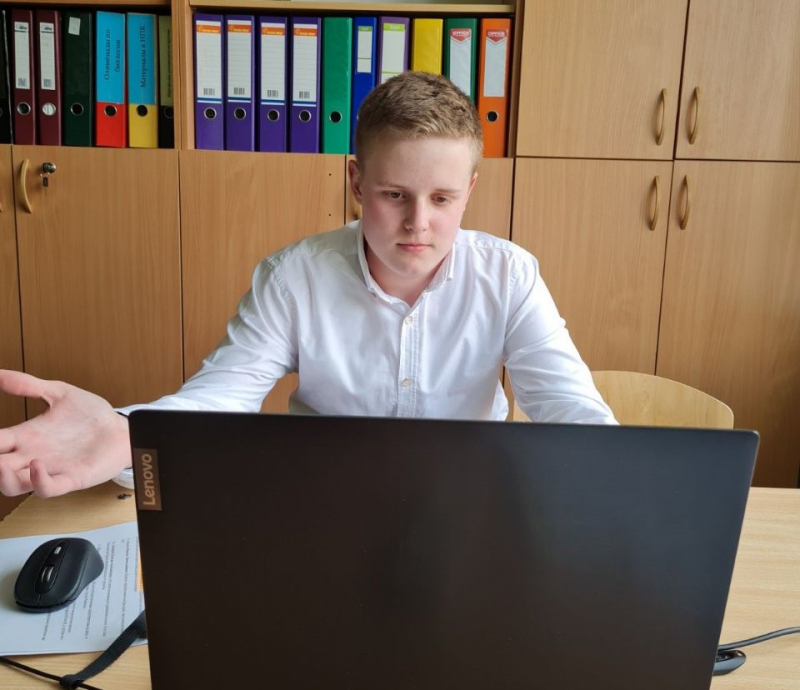
I analyzed the effects of a mixture of the essences of Siberian fir and dill on the Varroa destructor tick, which attacks honey bee larvae. I have been engaged in beekeeping for almost a year and a half. At first, it was just a spontaneous hobby – I found an old book about it and decided to check it out. Then I got more and more into it, talked to beekeepers, and read a lot. My dad and I have constructed hives and we even met the chairperson of the Belarussian association of beekeepers.
When I first got my own bees, it all went smoothly. I moved them to bigger hives, took care of them, and provided frames. But this idyll was disrupted by parasite ticks that harm beehives. Like all other beekeepers, I started to fight them, but chemical methods come with lots of limitations and nuances. The same stuff that helps cure bees might also hurt them. I started to look for other, nature-based solutions, but they are surprisingly uncommon.
Another reason to study this topic was the colony collapse disorder – that’s when bees all over the world leave their hives and die. Many researchers tend to think that the reason for that is the propagation of parasite ticks.

When it comes to promoting this treatment in the industry, it won’t be easy. In modern society, chemical agents take up the entire sector of the market and without support, skills, and large amounts of information, it will be hard to mass-produce this new product solution. As I am still a school student, I have more than enough time to develop my project and work for its success.
It is hard to say which institution I will apply to after graduation. When I found out that I had reached the finals of ITMO.STARS, I was a bit shocked. It is a great way to receive education and connect your hobby and your work.
It is truly fascinating to take part in an event like the Congress of Young Scientists. I have created my project for Belarussian competitions but now I am in international ones. The congress was filled with great moments: there were so many different projects in so many sections, it is amazing. Each presentation was a brand new thing, a new step in scientific evolution. All the participants were wonderful speakers and it was exciting to listen to them.




